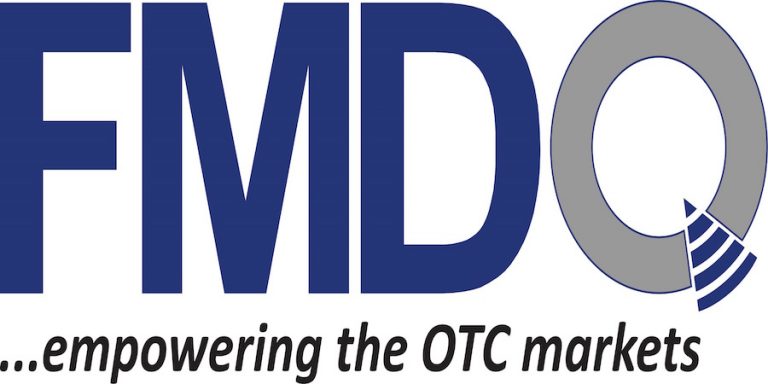The Companies & Allied Matters Act (CAMA 2020) signed into law by President, Muhammadu Buhari last week is expected to usher in a new wave of innovative developments, besides significantly improving the ease of doing business in Nigeria, and ushering in a new paradigm in the nation’s financial market.
In a statement on Monday, the management of FMDQ Holdings Plc, said the CAMA 2020, which repealed and replaced the 30 year-old 1990 version, will develop the financial market and the economy as a whole, in addition to making Nigeria a compelling destination of capital.
The new CAMA amendment Act, the statement added, will place Nigeria and its capital market at par with its international counterparts, stressing the need to develop architecture and infrastructures by the domestic market to align with international standards.
“Chief of the several impactful provisions in the CAMA 2020, is the inclusion of netting and bankruptcy remoteness provisions which signal the birth of a new financial market in Nigeria.
“Indeed, these game changing provisions will cure critical legal deficiencies that hitherto affected the development of the financial markets, with the netting provisions addressing the credit risk challenges, operational and legal bottlenecks of gross settlement for spot and derivatives transactions, and the bankruptcy remoteness provisions tackling the uncertainty around the finality of settled transactions whilst securely ring-fencing collaterals placed in execution of financial contracts.
“This Act is instrumental, in no small measure, to the successful takeoff of the derivatives market in Nigeria, a much-desired development, which will provide, amongst others, a wide range of risk management opportunities, enhanced market liquidity, improved price discovery, reduced risk capital charges and transaction costs as well as increased financial markets stability,” it added.
As far back as 2015, FMDQ Holdings Plc said it has, “in line with its mandate to build a thriving derivatives market in Nigeria, facilitated a feasibility study on the introduction of derivatives in the Nigerian financial market.”
The findings, he stressed, showed that the critical success factors for a derivatives market include “effective management of counterparty risk through the activation of a central counterparty (CCP), and adequate legal framework, both of which have been fully addressed in the CAMA 2020.”
The group recalled that since inception, it has engineered the requisite architecture towards improving the diversity and depth of the market, while promoting an environment for innovation and market development to thrive.
“From an over-the-counter (OTC) market launched in 2013, to a full-fledged Securities Exchange, to a vertically integrated financial market infrastructure (FMI) group, FMDQ Group has developed a sustainable market architecture through its wholly owned subsidiaries – FMDQ Securities Exchange Limited, FMDQ Clear Limited, FMDQ Depository Limited and FMDQ Private Markets Limited – towards building, in collaboration with the regulators and market stakeholders, a developed financial market in Nigeria.”
The statement quoted the Chief Executive of FMDQ Group, Bola Onadele.Koko as saying that “with FMDQ Exchange as a market organiser for the fixed income, foreign exchange and derivatives markets in Nigeria, and given the domestic and global call to improve participation in the markets by providing hedging opportunities to support investor interest, the Exchange is set to support the establishment of a well-functioning derivatives market in Nigeria.”
This, he added, followed its “launch of a Derivatives Market Project in 2017, and the planned activation of derivative products, in 2020, to hedge interest rate risks, in addition to the existing currency risk hedging product, the OTC FX Futures product.
“To ensure the successful activation of the derivatives market, FMDQ Clear, Nigerian’s first central clearing house (CCH), is well positioned to providing the much-needed CCP services, upon regulatory approval, and has proactively set aside a default resolution reserve with a near-term target of ₦20bn, which will enable the innovation of financial transactions in the Nigerian financial market to a well-capitalised Clearing House, thereby de-risking counterparty risks prevalent in derivative contracts.”
This is also expected to result in the “provision of clearing services for spot and derivatives products towards ensuring settlement finality for financial market transactions, and introduction of even greater efficiency and stability to the Nigerian financial markets,“ he stressed further.
For him also, the contributions of all financial system regulators in the market development cannot be over-emphasised, given the foresight of the Securities and Exchange Commission (SEC) over the years. This, he added, resulted in approval of the registration of the FMDQ entities, the erstwhile OTC market in 2012, FMDQ Clear in 2017, and FMDQ Depository and FMDQ Exchange, both in 2019.
The approval, the exchange added, provide the market with a one-stop shop for the end-to-end execution of financial market transactions, following which the Central Bank of Nigeria (CBN), in 2016, in conjunction with the FMDQ Exchange, introduced the OTC FX Futures market, ahead of the launch of other derivative products, which fostered stability in the FX market, with circa US$50bn worth of contracts so far executed on FMDQ Exchange and cleared by FMDQ Clear.
Experts believe that with the improved regulatory landscape, adoption of liberalized markets – especially in foreign exchange, Nigeria is bound to witness a more attractive financial system that will galvanize foreign capital flow, improve trading and funding liquidity of the markets, attract human capital and cause a reduction in the cost of capital, thereby boosting the nation’s reserves, engendering the much-desired economic transformation, and ultimately positioning Nigeria and Nigerians for prosperity.








